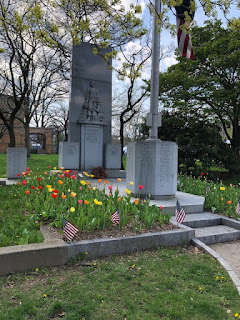You've probably seen them: groups of kids, almost always boys, weaving their bikes in and out of traffic lanes, veering across center lines and riding as close as they can to oncoming cars. Sometimes, they're popping wheelies as they're zigging and zagging along the pavement.
When I see such groups, if I can catch the gaze of one of their members, I might yell, "Be careful, OK" or simply give them what I believe is a concerned but nonjudgmental look. Kids need to be kids and, truth be told, I did more than a few stupid and dangerous things. But I want them to be able to look back and reflect on, well, the stupid and dangerous things they got away with doing.
If cops are going to deal with them, they should stop to the kids and talk to them. They might continue what they were doing as soon as the cops are out of sight, but I think the cops should at least make them think. Ticketing--or, worse, arresting--them on bogus charges probably will accomplish nothing more than to make them more distrustful of authority, and defiant, than they already are.
Especially if the charge is one that has never been levied in the history of the kids' community.
That is what happened last week in Perth Amboy, New Jersey--a city connected to Staten Island, New York by the Outerbridge Crossing. I occasionally ride through it as I'm pedaling to other parts of New Jersey and I rode in and through it fairly often when I was a student at Rutgers.
Then, the majority of Perth Amboy residents were poor or working-class Hispanics, and there was a sizable Black community. In that sense, it hasn't changed, save for which Hispanic and Black people live there. Also not changed is the relationship between the people and the ones who police them.
An already high tension level has ratcheted up during the past year, in the wake of George Floyd's murder and other crimes and misdeeds by police officers against non-white people. Things could have reached a breaking point--and might, still--after videos surfaced of the police confiscating the bikes and handcuffing one of the boys--who happens to be African American.
The charge--riding while black, I mean, without a bicycle license. I'd love to know when was the last time, before last week, that law was enforced.









